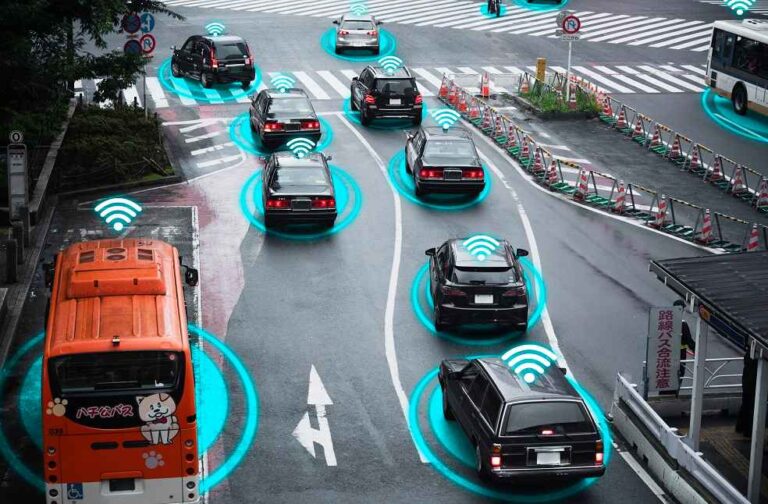Beijing: China’s Ministry of Industry and Information Technology (MIIT) has announced an ambitious pilot program to revolutionize transportation through “vehicle-road-cloud integration” for intelligent connected vehicles (ICVs). Twenty major cities, including Beijing and Shanghai, have been chosen to participate in this pioneering initiative, which aims to establish a unified and shared standard system for ICVs by 2026.
Context and Objectives:
This pilot program is the culmination of extensive planning and collaboration among multiple government departments. In January 2024, the MIIT, in conjunction with five other departments, issued the “Notice on Launching the Pilot Work of ‘Vehicle-Road-Cloud Integration’ Application for Intelligent Connected Vehicles.” The program’s objectives are far-reaching and ambitious:

- Building a Unified System: Creating city-level application pilot projects with standardized architecture, services, and operations to ensure interoperability and seamless integration across different regions.
- Infrastructure Development: Driving the construction of intelligent roadside infrastructure and cloud control platforms, laying the foundation for the widespread adoption of ICVs.
- Increased Vehicle Connectivity: Enhancing communication and data-sharing capabilities by increasing the assembly rate of on-board terminals in vehicles.
- Diverse Application Scenarios: Designing and implementing various scenarios for ICVs, from autonomous driving to smart traffic management, to test and refine the technology in real-world conditions.
- Standardization and Evaluation: Developing a unified vehicle-road collaborative technology standard and test evaluation system to ensure safety and reliability.
- Enhanced Road Safety: Significantly improving road traffic safety through advanced communication and data-driven technologies.
- Economic Growth and Innovation: Stimulating economic growth and technological innovation through large-scale demonstration applications and new business models.
Strategic Importance:
The “vehicle-road-cloud integration” system is a cornerstone of China’s strategic vision for transforming its transportation landscape. It aligns with the country’s broader goals of sustainable development, technological innovation, and economic growth. By embracing ICVs and supporting infrastructure, China aims to enhance transportation efficiency, reduce traffic congestion and accidents, and lower emissions, contributing to a cleaner and more sustainable environment.
Economic and Social Impact:

The successful implementation of this pilot program could have a profound impact on both the economy and society. It has the potential to create a thriving ecosystem of businesses involved in automotive manufacturing, technology development, infrastructure construction, and related services. This would not only generate new employment opportunities but also drive economic growth in various sectors.
From a social perspective, the benefits are equally significant. Improved road safety, reduced traffic congestion, and lower pollution levels would enhance the quality of life for citizens and contribute to healthier communities. The increased efficiency of transportation systems would also benefit businesses by streamlining logistics and reducing transportation costs.
Prospects and Global Implications:
The pilot program’s success could have far-reaching implications beyond China’s borders. As the program progresses and demonstrates the feasibility and benefits of “vehicle-road-cloud integration,” it could serve as a blueprint for other countries seeking to modernize their transportation systems. The insights gained from this initiative could shape global standards and practices for ICVs, accelerating their adoption worldwide.
Global Attention:

China’s pilot program for “vehicle-road-cloud integration” represents a bold step towards the future of transportation. It is a testament to the country’s commitment to technological innovation and sustainable development. As the program unfolds, it will undoubtedly capture the attention of policymakers, industry leaders, and researchers worldwide, offering valuable lessons and insights into the potential of intelligent connected vehicles to revolutionize the way we travel.
TRENDING | Automobile Robotic Service Centers: The Future and Challenges





